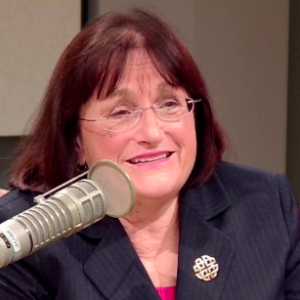New Hampshire U.S. Rep. Annie Kuster said Tuesday the need for unrestricted legal abortion is related to the economy and inflation, echoing controversial statements made by Treasury Secretary Janet Yellen.
Kuster also dismissed concerns about protesters targeting the private homes of U.S. Supreme Court justices in an attempt to impact their decision on Roe v. Wade, saying they are “high profile” people with plenty of security.
Kuster made her remarks during a Tuesday interview on WGIR radio, just hours before Yellen addressed the Senate Banking Committee.
Yellen told the committee restrictions on abortion “would have very damaging effects on the economy and would set women back decades.”
“In many cases, abortions are of teenage women, particularly low-income and often Black, who aren’t in a position to be able to care for children, have unexpected pregnancies, and it deprives them of the ability often to continue their education to later participate in the workforce,” Yellen added.
“So there is a spillover into labor force participation. But it means the children will grow up in poverty and do worse themselves. This is not harsh. This is the truth.”
Sen. Tim Scott (R-S.C.), who grew up in a low-income, single-parent household, took issue with Yellen’s arguments.
“I’ll just simply say that as a guy raised by a Black woman in abject poverty, I am thankful to be here as a United States senator.”
Kuster also argued that abortions are good for the economy.
“This has an economic impact, a dramatic economic impact. Forced pregnancy — government-mandated pregnancy — means that people will not be able to pursue their education. They won’t be able to pursue their career path. Pregnancy is expensive! Raising children is expensive.”
“Most abortions are families who may already have children and can’t afford more children,” Kuster added.
New Hampshire law allows unrestricted abortions for the first six months of pregnancy but bans late-term abortions except in extremely narrow circumstances. Polls show most voters support New Hampshire’s approach.
Asked about her plans to address the 40-year high inflation numbers that continue to hit consumers, Kuster turned the interview back to abortion.
“These two issues are related. This is coming at a time when families can’t afford to have another baby, or they’re struggling to pay the cost to take care of their own families.”
Some Democrats find the economic analysis of abortion disturbing.
“Instead of voting on this radical legislation that goes beyond Roe v. Wade, we need to be supporting pregnant women so they have the resources to deliver to full-term and raise their children,” said Jess Meeth, communications director for Democrats For Life America (DFLA). “Women deserve real choice, real support, and real resources to carry and raise children.”
On Wednesday, the “Women’s Health Protection Act” missed the 60-vote threshold for cloture 49-to-51, as expected. Some progressives wanted to use the Reid Rule — named after the late Democratic Senate Majority Leader Harry Reid of Nevada — to end the legislative filibuster to pass the pro-abortion legislation. But there were not 50 votes for the rule change or for the legislation itself.
Sen. Joe Manchin (D-W.V.) was the only Democrat who opposed the bill. He called out his fellow Democrats for their inaccurate claim the legislation merely “codified Roe.”
“It’s not Roe v. Wade codification, it’s an expansion” of abortion,” Manchin said.
“I was hopeful that the Democratic Party, having control of the agenda would put a piece of legislation forward that would codify Roe v. Wade,” Manchin said Tuesday “For me, that would be the reasonable, rational thing to do.”
Kristen Day, DFLA’s executive director, also suggests the politics aren’t great for her fellow Democrats.
“This is an extreme bill that goes further than Roe,” Day said. “Sen. Schumer wanted to put senators on record and he may not like the outcome this fall. A vote against abortion extremism will bring voters to the polls – particularly in toss-up races.”
In the same interview, Kuster was asked if it is appropriate for pro-abortion protesters to target the private homes of Supreme Court justices as they consider a ruling that could overturn Roe v. Wade. She dismissed these concerns.
“These people know they are in very high-profile positions. They have security.”
According to a Washington Post analysis, the protests are almost certainly illegal.




